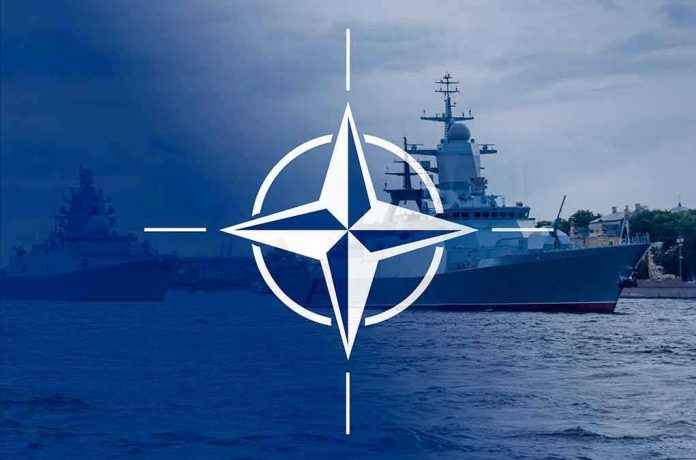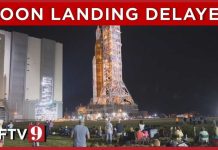
Russia’s overnight drone incursion into Poland forced NATO’s first direct military response on alliance soil—raising alarms about border security, sovereignty, and the future of U.S. defense commitments.
Story Highlights
- Russian drones crossed into Polish airspace, triggering NATO’s first direct shootdown of enemy assets over alliance territory since the Ukraine war began.
- Poland invoked NATO Article 4, leading to an emergency multinational military response and unprecedented airspace shutdowns.
- Incident marks Russia’s most severe cross-border escalation to date, with potential consequences for U.S. defense priorities and border policies.
- NATO launched Operation Eastern Sentry while Russia and Belarus held joint military drills, escalating regional tensions.
Russian Drone Incursion Breaches NATO Border
On September 9, 2025, Russian drones entered Polish airspace late at night, violating the borders of a key U.S. ally and NATO member. This incursion followed Russia’s most intense missile and drone barrage against western Ukraine since the start of the war, with several drones crossing deep into Polish territory. The Polish Air Force and NATO allies responded immediately, scrambling jets and activating air defense systems. Multiple drones were shot down—making this the first time NATO forces directly engaged and neutralized Russian assets within alliance territory. Airports in Poland were temporarily closed, disrupting civilian air traffic and signaling the gravity of the security threat.
Poland Invokes Article 4—NATO Unity Tested by Russian Provocation
Facing an existential threat, Poland promptly invoked NATO Article 4, demanding emergency consultations and collective defense action. The multinational response included Dutch, Italian, Belgian, German, and Polish air defense units, demonstrating a unified front against Russian aggression. This direct attack on NATO airspace forced the alliance to accelerate Operation Eastern Sentry, reinforcing the eastern flank and heightening military alert levels. The incident occurred amid ongoing Russian and Belarusian military exercises in the region, amplifying concerns about further escalation. Polish officials called the drone incursion “unprecedented,” emphasizing the challenge to European security and the need for strong U.S. leadership in maintaining alliance deterrence.
Border Security and Sovereignty—Implications for America’s Defense Posture
The Russian drone strike on Poland highlights the critical importance of secure borders and robust defense capabilities—core conservative values that have shaped American policy since President Trump returned to office. The U.S. has supported Poland as a frontline state, recognizing the strategic dangers posed by unchecked aggression and porous borders. The incident underscores why Trump-era policies focus on fortifying America’s own borders, curbing illegal immigration, and restoring national sovereignty. Just as NATO scrambled to defend Poland, the U.S. faces similar threats from hostile actors exploiting border vulnerabilities. Conservatives argue that strong borders and decisive military action are vital to protecting freedom and constitutional rights.
Escalation Risks and NATO’s Response—What Comes Next?
NATO’s robust response sent a clear message to Russia and its allies, but the risk of further escalation remains. Russia denied responsibility, questioned drone range, and offered technical talks, while Belarus claimed the drones were deflected by Ukrainian countermeasures. No casualties occurred in Poland, though property damage and air raid alerts disrupted communities. Investigations into drone origins continue, with radar and debris evidence supporting NATO’s account. The incident has already led to increased defense spending across the region, deeper NATO-Ukraine cooperation, and a reevaluation of alliance deterrence strategies. For American patriots, the event is a stark reminder of the dangers posed by foreign aggression and the need for constant vigilance—at home and abroad.
Expert Analysis—Security, Sovereignty, and Conservative Values at Stake
National security experts view the Polish border breach as a significant escalation, testing NATO’s collective defense mechanisms and the resolve of U.S. leadership. Military analysts praise the rapid, integrated air defense response but warn that accidental escalation remains a real danger, underscoring the need for robust communication channels and clear deterrence. The incident has strengthened NATO unity, but diverse viewpoints persist: Western officials cite deliberate Russian provocation, while Moscow denies intent. For conservative readers, the story exemplifies why strong defense, secure borders, and constitutional protections must remain top priorities—especially in a global climate rife with aggression and instability.
Sources:
2025 Russian drone incursion into Poland – Wikipedia














